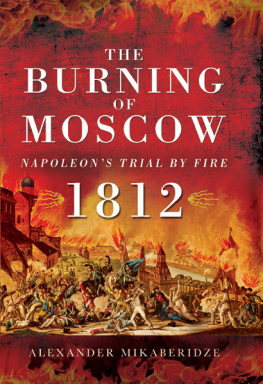W. G. Shepherd - The Moscow Trial
Here you can read online W. G. Shepherd - The Moscow Trial full text of the book (entire story) in english for free. Download pdf and epub, get meaning, cover and reviews about this ebook. City: London, England, year: 1936, publisher: Communist Party of Great Britain, genre: History. Description of the work, (preface) as well as reviews are available. Best literature library LitArk.com created for fans of good reading and offers a wide selection of genres:
Romance novel
Science fiction
Adventure
Detective
Science
History
Home and family
Prose
Art
Politics
Computer
Non-fiction
Religion
Business
Children
Humor
Choose a favorite category and find really read worthwhile books. Enjoy immersion in the world of imagination, feel the emotions of the characters or learn something new for yourself, make an fascinating discovery.

- Book:The Moscow Trial
- Author:
- Publisher:Communist Party of Great Britain
- Genre:
- Year:1936
- City:London, England
- Rating:4 / 5
- Favourites:Add to favourites
- Your mark:
- 80
- 1
- 2
- 3
- 4
- 5
The Moscow Trial: summary, description and annotation
We offer to read an annotation, description, summary or preface (depends on what the author of the book "The Moscow Trial" wrote himself). If you haven't found the necessary information about the book — write in the comments, we will try to find it.
The Moscow Trial — read online for free the complete book (whole text) full work
Below is the text of the book, divided by pages. System saving the place of the last page read, allows you to conveniently read the book "The Moscow Trial" online for free, without having to search again every time where you left off. Put a bookmark, and you can go to the page where you finished reading at any time.
Font size:
Interval:
Bookmark:
By W. G. Shepherd
On August 24th, 1936, a trial concluded in Moscow. A Soviet Court, acting in conformity with the established Criminal Code of the country, gave its verdict. Zinoviev, Kamenev and fourteen others, charged with plotting the murder of Stalin, Voroshilov and other leaders of the Communist Party and the Government of the Soviet Union, were found guilty. The death sentence was pronounced. It was carried out thirty hours later.
The Court also pronounced that the main instigator of the intended murders was Leo Trotsky, now interned in Norway.
No one will gainsay the importance of this trial. It has aroused much controversy. Sensational reports are of daily occurrence in the British Press. They tell of a "new Stalin purge," "the end of Bolshevism," of "risings by the Red Army," of new arrests, of Russian trade representatives such as M. Ozersky being recalled to Moscow and his wife being kidnapped by Ogpu agents. In short, an anti-Soviet campaign is in full swing.
These sensational reports are coupled with attacks on the trial of Kamenev, Zinoviev and their associates, in the hope of discrediting the Soviet Union and its responsible leaders. It is hardly necessary to say that the reports of "a new wave of terror" in the Soviet Union are completely untrue, and that the main source of these reports is the German Nazi propaganda machine.
But there are many good friends of the Soviet Union who, while fully recognising the nature and aim of the press attacks, have nevertheless unconsciously been troubled by these attacks, and feel that there are many questions on the trial which require an answer.
My aim in writing this pamphlet is to provide that answer.
Like all trials, the trial of Zinoviev and his associates has a background. It hasn't just happened that the Soviet Government has suddenly discovered the existence of plots against the lives of several of its leaders. The recent trial of Zinoviev and his associates was intimately connected with an event which took place in the Smolny Institute in Leningrad, on the afternoon of December 1st, 1934: the actual murder of Sergei Kirov, secretary of the Central and Leningrad Committees of the Communist Party of the Soviet Union, and member of the Central Executive Committee of the U.S.S.R.
The assassin, L. V. Nickolaev, an employee in the former Workers' and Peasants' Inspection, was immediately arrested. Along with his arrest took place that of thirteen others who composed what was known by them as the "Leningrad Centre" of terrorists. On December 27th, 1934, the indictment against Nikolaev and his thirteen associates was published in full in all newspapers in the Soviet Union. This indictment shows:
- That Nikolaev and his associates were members of an illegal counter-revolutionary group in Leningrad, and that they were all former members of the Zinoviev opposition.
- That, according to Nikolaev's own words, "the members of the group accepted the platform of the Trotsky-Zinoviev bloc. They considered it necessary to replace the existing Party leadership by all possible means...."
- That this group had as its chief work to disorganise the Soviet Government by assassination of the leaders.
- That Nikolaev frequently visited a certain consulate in Leningrad where he conducted negotiations for help for the group. The consulate was afterwards proved to be the Latvian consulate.
"We could not wait for a change in the Party leadership by the methods of inner-Party democracy," Nikolaev stated in explaining the aims of the "Leningrad Centre."
"We realised that this course was completely precluded. This left one road, the road of terrorist acts. When I fired at Kirov, I reasoned as follows: Our shot must serve as a signal for an explosion, for an uprising within the country against the Communist Party of the Soviet Union and Soviet Power...."
The examination of Nikolaev and his confederates set in motion further investigations. On December 23rd Zinoviev, Kamenev, and nineteen others were arrested. On January 16th, 1935, the Public Prosecutor published the indictment against them.
In this indictment evidence was brought forward to show that these leaders and members of the former opposition within the Communist Party of the Soviet Union had connections with, and were the inspirers of, the "Leningrad Centre" and a group known as the "Moscow Centre." Speaking of his responsibility for the crime committed on December 1st, 1934, the accused Zinoviev deposed:
".... The objective march of events was such that, with bowed head, I must say: the anti-Party struggle which assumed particularly sharp forms in the past year in Leningrad, could not but help in the degeneration of these scoundrels. This dastardly assassination threw such a sinister light on the past anti-Party struggle that I recognise that the Party is quite right in what it says on the question of political responsibility of the former anti-Party Zinoviev' group for the assassination that took place...."
Kamenev made a similar deposition. Thus in January, 1935, they admitted their moral guilt for the murder, but covered up their actual guilt as the organisers of it.
The Military Collegium of the Supreme Court of the U.S.S.R., which tried the case at the time, sentenced Zinoviev and three others to ten years' imprisonment, Kamenev to five years, and the other accused to sentences varying from eight to five years.
Being in the Soviet Union at this time, I well recall the hundreds of resolutions, passed at meetings of the Soviet people, that appeared in the Soviet press, demanding the utmost vigilance on the part of the Soviet Government and Communist Party to stamp out all the elements aiming to injure the country from within.
That these elements existed, that they were receiving help from outside the Soviet Union, was known. But it was only eighteen months later that certain discoveries by the Soviet authorities led to arrests and investigations, culminating in the trial of August, 1936.
On August 19th, 1936, Zinoviev, Kamenev and their fourteen fellow-conspirators appeared before the Moscow Court in the full blaze of publicity, with representatives present from every important newspaper in the world and, in addition, D. N. Pritt, K.C., M.P., eminent British barrister.
This latter fact is of very great significance in view of the slanderous assertions that have been made against the conduct of the trial by enemies of the Soviet Union. None can challenge either Mr. Pritt's integrity nor his competence to understand the significance of court procedure and the value of evidence. And Mr. Pritt has unequivocally stated that the men in the dock had a fair trial.
Soviet legal procedure is not the same as British. By the time the case comes to court, all the preliminary evidence has been heard and sifted, and the court hears the results of this sifting. In many ways the procedure is similar to that adopted in France, U.S.A. and other countries.
The sixteen accused men had all confessed their guilt, and the Prosecution was in possession of signed confessions when the hearing was commenced. It has been stated, without a tittle of evidence, that these confessions had been obtained by methods of terror, or alternatively by a promise that sentence of death would not be carried out if they confessed. But anyone who reads the detailed report of the trial will see that the confessions arose from the weight of evidence, and that even to the last several of the accused were trying to evade full responsibility. Smirnov, for example, repeatedly denied that he had personally conveyed Trotsky's instructions to murder Stalin and other Soviet leaders to the "Moscow Centre." It was only after evidence had been given by other accused that Smirnov was at last compelled to admit that he had been personally responsible for transmitting Trotsky's instructions.
Font size:
Interval:
Bookmark:
Similar books «The Moscow Trial»
Look at similar books to The Moscow Trial. We have selected literature similar in name and meaning in the hope of providing readers with more options to find new, interesting, not yet read works.
Discussion, reviews of the book The Moscow Trial and just readers' own opinions. Leave your comments, write what you think about the work, its meaning or the main characters. Specify what exactly you liked and what you didn't like, and why you think so.










